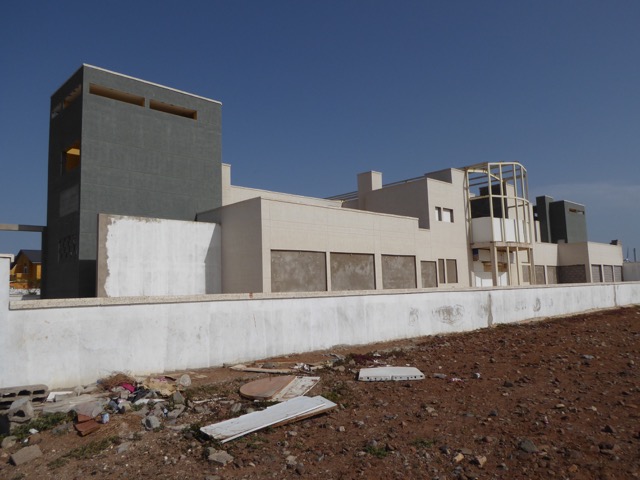Since the World economic recession in 2008, and many would say long before that, builders and developers have been accused of holding onto land that has been agreed for development purposes in the hope that eventually it will increase in value. At that time, and only when the price of land and property shows a significant mark up, will building work be completed.
As we have seen in the Canary Islands, Spain, as well as in the United Kingdom, the result of this approach has been a shortage of affordable housing due to building projects being put on hold or abandoned. Many young families in the Canary Islands still live with their parents with little hope of ever being able to afford to rent or buy a home of their own. Despite promises from governments, it is likely that it will be many years before promises can be fulfilled, if ever.
As far as repairs to infrastructure is concerned, one Spanish municipality has had enough and is going to take drastic action against such lethargy in the name of profit, which many would say is long overdue. The plan is to clamp down on developers that have not completed work that had been agreed. The Department of Planning will seize around 500,000 euros worth of bonds, which builders and promoters are obliged to lodge with the municipality at the planning stage, for agreed road repairs, pavements and public areas. These bonds are required at the initial stage of granting all building licences for the main purpose of ensuring that work is completed.
This sum is linked to around 60 permits that date back to the building boom of the pre-2008 period. The Municipality has examined each case in detail, and itemised the cost of agreed works that still need to be fulfilled. If the companies concerned are still trading they will have the option to immediately fulfil the agreement, or the bond funds will be seized so that the municipality can complete the outstanding work. This seems to be an obvious response and is the main purpose of the bond.
In the Canary Islands and Spain, there are many construction projects that remain incomplete. There are shopping centres, housing developments, roads and public buildings that have either been left abandoned at an early stage of work, or where the work has never started at all. In all cases, a bond should have been lodged with the municipality to ensure that work is completed in time. However, in some cases, close fraternal links between developers and council officials ensure that drastic action, including confiscation of the bond to ensure that work is completed, is never taken, and many projects remain deep frozen in a kind of building ‘limbo’.
We often hear of the need for rapid economic growth and the creation of employment opportunities, as well as building new homes. Maybe ensuring the completion of outstanding building projects, including building on land already earmarked for residential development, would be a welcome contribution to both the housing shortage, as well as providing employment opportunities.
If you enjoyed this article, take a look at Barrie’s websites: http://barriemahoney.com and http://thecanaryislander.com or read his latest book, ‘Footprints in the Sand’ (ISBN: 9780995602717). Available in paperback, as well as Kindle editions.
© Barrie Mahoney





